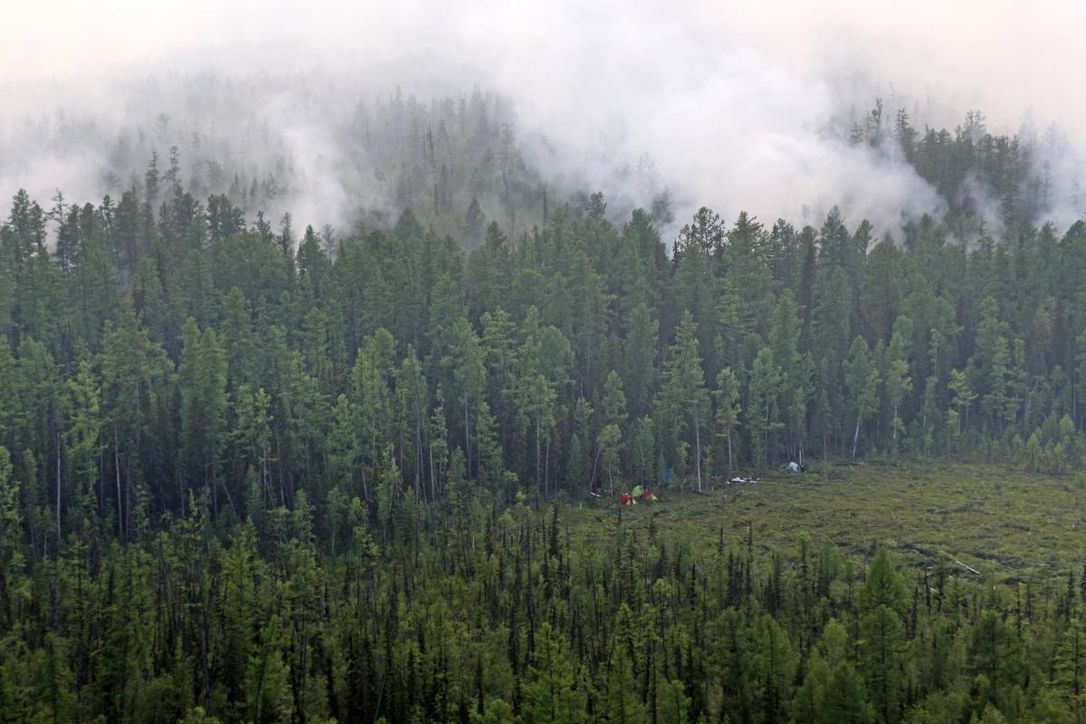China, the world’s second-largest timber consumer, is ready to help Russia restore its forests, which have suffered from wildfires and illegal logging.
Nuritdin Inamov, director of the Natural Resources Ministry's International Cooperation Department, said on Thursday that Beijing is anxious to help its northern neighbor, which is on track to have a record year of wildfires after nearly three months of them in Siberia.
“There are preliminary working arrangements for the beginning of the practical implementation of this idea,” Inamov told TASS, speaking at a Minister of Environment Meeting held in Sao Paulo, Brazil amongst BRICS (Brazil, Russia, India, China, South Africa).
“It’s necessary to choose the regions [to create nurseries for growing forest seedlings], to determine specific tasks, to consider zoning,” Inamov said.
Russia’s Siberia and Far East regions, with rich forests, have become a timber market for China, where the demand for timber has grown. According to a recent market research report, Russia provided 31 percent of China’s timber imports as recently as 2017. However, illegal deforestation of Siberia’s forests has created a problem over the last decade.
The idea of restoring Siberian and Far Eastern forests with help from China was first suggested by Russia’s Ministry of Natural Resources and Environment. In an interview with the Russian newspaper Vedomosti last week, its minister, Dmitry Kobylkin, said that the building of special seed-growing facilities and the replanting of trees will help to restore the lost forests, “for our children and grandchildren.”
He also expressed concerns over the issue of illegal loggers, which are putting the world’s largest forest under threat, leading to environmental and economic losses. Kobylkin says China must be part of any solution to the problem.
“China should have a clear understanding that if it fails to engage in solving this problem [of illegal loggers], we will have no other choice but to ban the export of lumber completely.”
Being one of the largest furniture suppliers to the global market, China’s consumption of timber is huge. As a result, the county’s reliance on timber imports rose from 48.4 percent in 2013 to 56.4 percent in 2017, according to the “Research Report on Timber Import in China, 2019-2023.”
Russian snow forests, called taiga, measure nearly 810 million hectares, or approximately two billion acres, making up 25 percent of the world’s forested area.
Fires in the Russian taiga occur annually, but this summer’s blazes have reached unprecedented sizes and strength. According to Greenpeace International, this season fires have burned down over 13.1 million hectares of forest, or 32.4 million acres – an area larger than Greece. Russian authorities have blamed some of the fires on arsonists trying to conceal illegal logging activity.
Stretching from the Ural Mountains in the west to China, Kazakhstan and Mongolia to the south, Siberia is a vast territory in Russia that borders the Arctic Ocean in the north and the Pacific Ocean to the east. Siberia region occupies about 77 percent of the land area of Russia, covering 5.1 million square miles, or ten percent of the world’s land surface.







 Armenian sappers commenced on Monday mine-clearance operations in the territories adjacent to the Saint Mary Church in village of Voskepar (Armenia...
Armenian sappers commenced on Monday mine-clearance operations in the territories adjacent to the Saint Mary Church in village of Voskepar (Armenia...
 Russian Foreign Minister Sergei Lavrov has reasserted that Moscow has no intentions to stop the fighting in Ukraine, even if peace talks commence.
Russian Foreign Minister Sergei Lavrov has reasserted that Moscow has no intentions to stop the fighting in Ukraine, even if peace talks commence.
 Iran has refuted reports of alleged damage to Shimon Peres Negev Nuclear Research Centre located southeast of Dimona, Israel, during the recent air...
Iran has refuted reports of alleged damage to Shimon Peres Negev Nuclear Research Centre located southeast of Dimona, Israel, during the recent air...
 Iran’s Foreign Minister, Hossein Amir-Abdollahian, has labeled a foiled Israeli drone attack in certain parts of the country as a "failure" for Isr...
Iran’s Foreign Minister, Hossein Amir-Abdollahian, has labeled a foiled Israeli drone attack in certain parts of the country as a "failure" for Isr...



